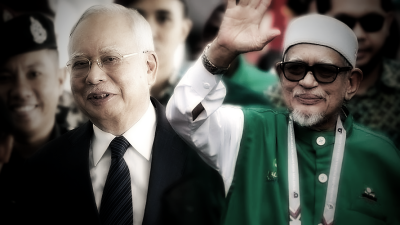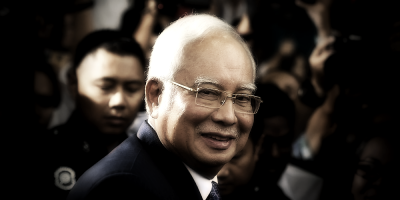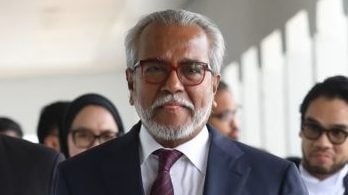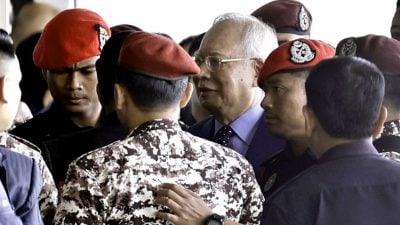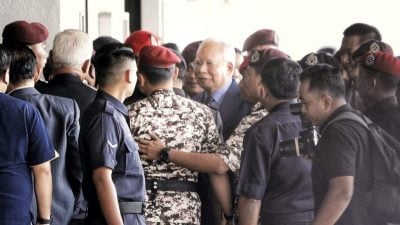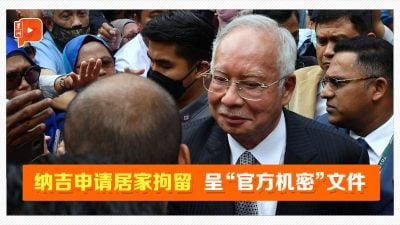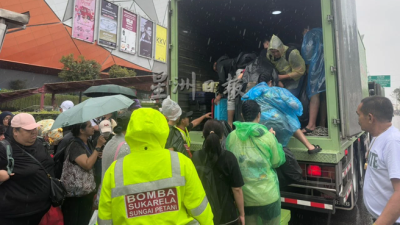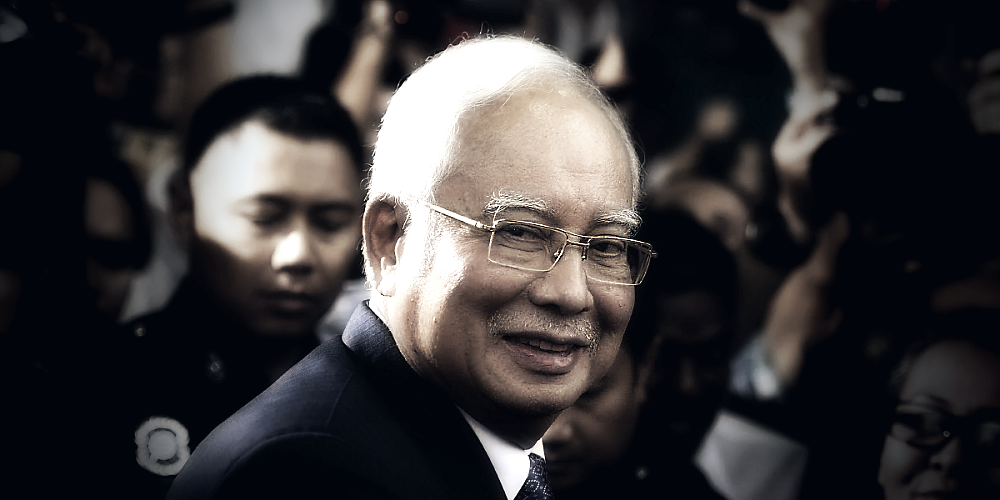
On January 29, former Yang di-Pertuan Agong Al-Sultan Abdullah chaired the 61st Pardons Board meeting a day before his term ended.
Following that, the Board announced “conditional pardon” for former prime minister Datuk Seri Najib Tun Razak, halving his jail term from 12 years to six, and reducing his fine from RM210 million to RM50 million.
Article 42(1) of the Federal Constitution stipulates that the Yang di-Pertuan Agong has the power to grant pardon for offenses committed by a convict, or reduce his or her prison term. His Majesty opted to grant “conditional pardon.”
By right Umno, Najib’ family, and his supporters should be grateful for the reduced sentence, but this is not the case.
Umno says it will initiate a signature campaign to seek a “full pardon” for Najib because he has not been given a fair trial.
Component parties of the Unity Government as well as NGOs have their own views as well.
DAP lawmaker Ramkarpal Singh feels that the Pardons Board should make public the reasons for the pardon while Bersih also questions the rationale behind the Board’s decision for singling out Najib among so many other convicts awaiting pardon in the country’s prisons.
Meanwhile, CSO Platform has urged the Unity Government led by Prime Minister Datuk Seri Anwar Ibrahim to explain to the rakyat Najib’s partial pardon.
Anwar said after the “conditional pardon” announcement that anyone convicted by the court could seek royal pardon from the King, adding that Najib’s application for pardon had gone through the legal procedures and the Pardons Board’s decision was fair.
The PM continued that Najib also had the right to seek pardon from the new King, and he would respect the King’s decision.
So, the controversy around Najib’s pardon is the reasons for the pardon, not the legality of it.
As KL-Selangor Chinese Assembly Hall (KLSCAH) said in its statement, there should be public explanation on the reduced sentence of Najib to protect the rakyat’s right to information.
Cabinet ministers, in the meantime, are doing all they can to appease the public. Transport minister Anthony Loke urges all quarters to remain calm, and says he understands the disappointment of PH supporters over Najib’s pardon. He explains that this is within the absolute powers of the country’s Head of State which should not be intervened by the cabinet, nor challenged by the law.
Loke says the decision was made based on the application filed by Najib, and as the Pardons Board meeting is a closed-door meeting, there’s no way to tell the basis upon which the decision was made.
Communications minister Fahmi Fadzil hopes all quarters, including political leaders, to respect the Pardons Board’s decision and refrain from making sensitive 3R statements.
As the SRC International case Najib was involved in is commanding global attention, it is imperative that the Pardons Board act in full transparency, lest the credibility of the country’s judiciary as well as our national image be jeopardized.
We all understand that this is the prerogative of the Yang di-Pertuan Agong and the Pardons Board which must not be questioned by the cabinet or legally challenged by any individual.
However, perhaps an explanation from the Board can help allay the speculations and queries, and prevent the issue from being politicized by politicians.
It is hoped that the Board can explain the conditions for pardon application, including whether a convict must first complete at least a third of his or her jail sentence, and whether the convict needs to plead guilty to the offense in the first place.
Is the fact that Najib is still facing other charges a factor of consideration for him not to be granted a full pardon? If he is convicted of new charges in future, can he continue to apply for a pardon? Other than Najib’s application, did the January 29 meeting also discuss other pardon applications?
With so many convicts awaiting pardon, “cutting in line” should not have happened. If as Umno Supreme Council Member Lokman Noor Adam has claimed, Najib’s application was brought to the Pardon’s Board meeting early because of Anwar, was such a move legal and was there any precedent before this?
As the SRC International case Najib was involved in is commanding global attention, it is imperative that the Pardons Board act in full transparency, lest the credibility of the country’s judiciary as well as our national image be jeopardized.
Additionally, non-transparency could also thwart PM Anwar’s effort to battle corruption.
ADVERTISEMENT
ADVERTISEMENT






